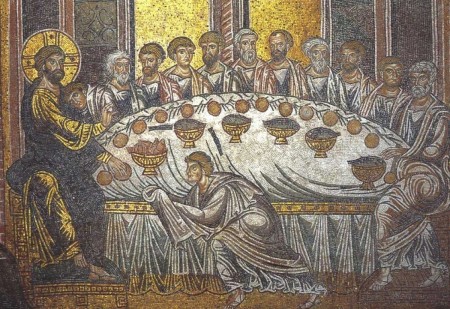Leery about Friday the 13th? You’re not alone

The Bible says born-again faithful “have not been given a spirit of fear,” but Christianity has contributed to the origins of triskaidekaphobia (fear of the number 13) and paraskevidekatriaphobia (fear of Friday the 13th).
These disorders affect perhaps as much as 10% of the U.S. population, according to the late Donald Dorsey, a clinical psychologist and founder of the Stress Management Center and Phobia Institute in Asheville, North Carolina. He long was known as an expert on beliefs linked to the number and date.
Dorsey estimated several hundred million dollars a year are lost due to people avoiding travel, business deals, and other activity on Friday the 13th. However, a Dutch study found a silver lining in that cloud: 3% fewer accidents, thefts and fires on that date owing to reduced outings by the suspicious.
“Fears can be irrational, based on things we tell ourselves about a situation,” Ken Haney, a licensed professional counselor and ordained Southern Baptist pastor, told The Christian Post. “Even though they are irrational, they feel as real as if something is legitimately threatening us. Our bodies respond, adrenalin kicks in, and it’s flight, fight or freeze.”
The two phobias appear to have their origins in the Western world’s Middle Ages. The Last Supper had 13 guests, the last Judas Iscariot, who slipped out and betrayed Christ to the chief priests. (An old superstition later held if 13 ate together, one would die soon.) The meal supposedly took place on the 13th of Nisan in the Jewish calendar.
Appropriately, Scripture tells the story of the Last Supper starting in John 13:18, with Jesus saying, “I do not speak concerning all of you. I know whom I have chosen; but that the Scripture may be fulfilled, ‘He who eats bread with Me has lifted up his heel against Me.’"
The Bible champions 12, regarded as symbolic of perfection and authority and used 187 times in Scripture. Some examples are the 12 tribes of Israel, spies sent into the Promised Land and gates to the New Jerusalem. One off means misalignment with God’s desires, such as six instead of seven (i.e., "The number of a man ... is 666," Revelation 13:18).
Throughout history, many have thought Christ’s death on the cross came on a Friday. That later was a common day of execution in Britain and the rest of Western Europe, with 13 steps leading to the hangman’s gallows.
Less likely biblical origins include the notion that Adam and Eve ate from the forbidden fruit on a Friday and later died on that weekday. Cain supposedly slew Abel on Friday the 13th.
France’s Philip IV ordered the arrest of those in the Roman Catholic military order of the Knights Templar on Friday the 13th, 1307. More modern reinforcement comes from the date of the Nazi bombing of Britain’s Buckingham Palace in 1940 and disappearance of a Chilean jet in the Andes in 1972 plus the 1980s horror movie series “Friday the 13th.”
To overcome such phobias, Haney recommended to CP to “start by examining reality. Is this really a threat, or just something you’re telling yourself is? If self-talk is causing the problem, then sometimes you have to be real intentional in telling yourself this isn’t real.
“The second thing, if there’s no real threat but your emotions say there is, pull evidence into it. Statistical studies tell us it’s much more likely we’ll die in bed of disease than anything from Friday the 13th.”
Those who are born again have additional weapons in their arsenal to combat the problem, he added.
“When we pull God into the picture, we see He’s promised to protect us, to have angels over us. He says we have been given ‘love, power and a sound mind’ (2 Timothy 1:7),” Haney said. “And if God allows me to go through some type of suffering, I know He’ll go through it with me and produce some good out of the situation.”





















